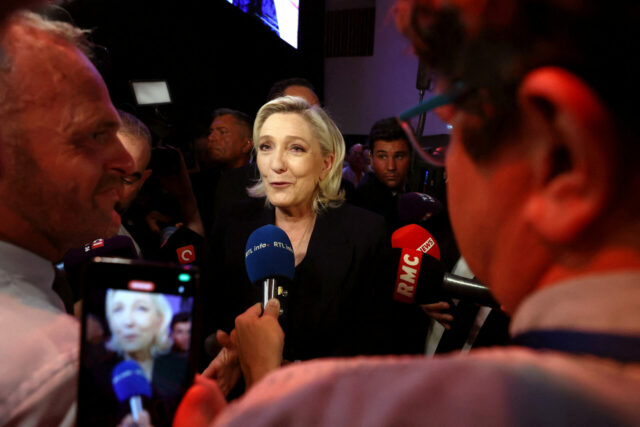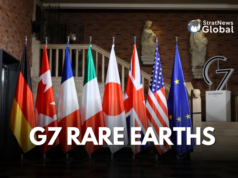French political parties are uniting to block the far-right National Rally (RN) from gaining power in the upcoming parliamentary run-off election. Over 200 candidates have withdrawn from Sunday’s second round to consolidate the anti-RN vote, with more expected to drop out before the 6 p.m. deadline.
Far-Right Predicted To Fall Short Of Outright Majority
Marine Le Pen’s RN surged ahead in Sunday’s first-round vote, overtaking French President Emmanuel Macron’s centrist camp, which fell to third place behind a newly formed left-wing alliance. Despite this strong showing, pollsters predict the far-right party will secure between 250-300 seats, falling short of the 289 needed for a majority.
Opposition parties have formed a “republican front” to oppose the anti-immigrant, eurosceptic RN. Paris Mayor Anne Hidalgo urged voters to mobilize, declaring, “The match is not over. We must mobilize all our forces.”
Macron Reaches Out To Left
Consequently, Macron prioritizes blocking the far-right RN, even endorsing candidates from Jean-Luc Melenchon’s radical left-wing France Unbowed (LFI) party when necessary. His strategy echoes the successful 2002 “republican front” that united voters against Le Pen’s father in the presidential contest.
Marine Le Pen’s efforts to soften her party’s image have made it less of a pariah for many voters. An Ifop poll reveals that mainstream conservative voters will support left-wing candidates against the RN, except those from Melenchon’s LFI.
Le Pen insists the RN will not form a government without a workable majority but has not ruled out reaching out to allies if they fall short of 289 seats. She has warned against potential “administrative coup” attempts by Macron to hinder RN policies, which the president’s office denies.
Hung Parliament Looms
Financial markets initially reacted positively to the far-right’s limited success, but concerns persist about potential policy paralysis for the remainder of Macron’s term. As France heads into the crucial second round, tension and uncertainty dominate the political landscape.
With inputs from Reuters
Traveller, bibliophile and wordsmith with a yen for international relations. A journalist and budding author of short fiction, life is a daily struggle to uncover the latest breaking story while attempting to be Hemingway in the self-same time. Focussed especially on Europe and West Asia, discussing Brexit, the Iran crisis and all matters related is a passion that endures to this day. Believes firmly that life without the written word is a life best not lived. That’s me, Ashwin Ahmad.





